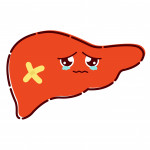Treatment access advocacy groups recently filed five challenges to patents on hepatitis C virus (HCV) medications in India and Argentina. Their goal is to help remove existing barriers to the production and distribution of generic new direct-acting antivirals in these countries and to help drive down the price for three new hepatitis C treatments around the world, Specialty Pharmacy Times reports.
Global health advocacy groups, the Initiative for Medicines, Access & Knowledge (I-MAK) and the Delhi Network of Positive People (DNP+) are behind four patent challenges in India, with support from Doctors Without Borders/Médecins Sans Frontières (MSF).
Two of those patent challenges are focused on daclatasvir (Daklinza), Bristol-Myers Squibb’s latest HCV treatment. The third challenge targets sofosbuvir/velpatasvir (Epclusa) Gilead Sciences’ new all-genotype NS5A inhibitor, and a fourth challenges patents for Gilead’s blockbuster hepatitis C treatment, sofosbuvir (Sovaldi).
Meanwhile in Argentina, Fundación Grupo Efecto Positivo (FGEP) filed a separate patent challenge against sofosbuvir. That effort was also supported by I-MAK.
According to health advocates, the patent challenges attack a strategy used by global pharmaceutical companies called “evergreening,” which allows drug manufacturers to file additional patents to help extend the length of their market control over a product. The practice essentially prevents generic drug manufacturers from producing their own cheaper versions of the drugs, which advocates argue makes hepatitis C treatment prohibitively expensive in many parts of the world.
Challenges to patents on sofosbuvir are already pending in Argentina, Brazil, Russia and Thailand over similar pharmaceutical industry practices. So far, these efforts have successfully removed patent protections for sofosbuvir in the European Union and revoked a key patent on sofosbuvir in China and Ukraine.







Comments
Comments